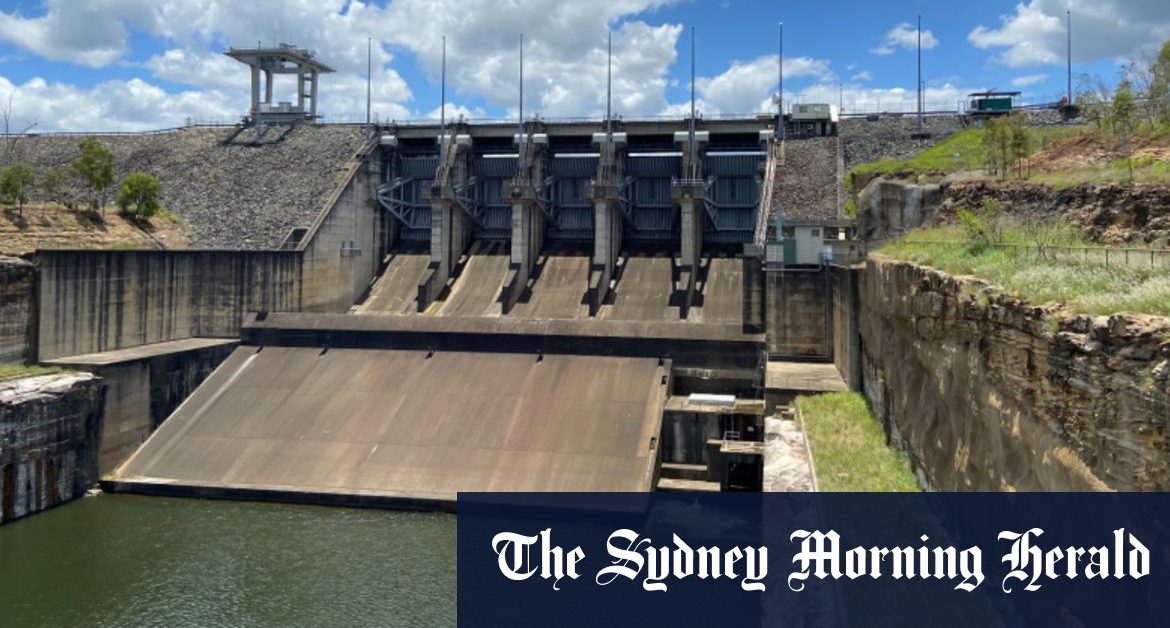The Pegoraros family, from Corinda, had already reduced their water usage to fewer than 100 litres a day, and said it helped them save money.
“We’ve saved water with the help of our rainwater tank and by making some easy changes to our everyday habits,” Debbie Pegoraro said.
Corinda parents Debbie and Roger Pegoraro, and their son Elijah, 8, are keen to save water.
“We use the tank water to flush toilets and do the laundry, have installed water-efficient devices, and are conscious of using water wisely however we can.”
Mandatory region-wide water restrictions will be introduced if the combined level of the region’s drinking water dams falls below 50 per cent.
Authorities have also begun an “initial start-up” of a controversial scheme that could lead to recycled water being pumped into the drinking supply.
Recycled water is highly treated wastewater that has been disinfected through the sewage treatment process.
As part of the SEQ Drought Response Plan, Seqwater considers the full restart of the partially mothballed $2.6 billion Western Corridor Recycled Water Scheme when the water grid’s dam levels fall below 60 per cent.
The water grid would have to hit 40 per cent before Seqwater asked Water Minister Glenn Butcher to sign off on adding recycling water to the drinking supply.
But it will take two years – and $180 million – to fully recommission the scheme, which was put into “care and maintenance mode” in 2013.
Last month, Seqwater chief executive Neil Brennan said the decision about whether to fully restart the scheme would be made after summer, as weather forecasters had predicted strong La Nina conditions and higher-than-average rainfall.
But despite recent rain, the highest level reached over summer was 58.5 per cent.
A Seqwater spokesman said it would assess dam levels, water demand and supply and weather conditions after the wet season and provide advice to the Queensland government, which would decide on whether to fully restart the Western Corridor Recycled Water Scheme.
Water Services Association of Australia executive director Adam Lovell said recycled water offered climate resilience as it was not as reliant on rain as traditional options such as dams, and schemes were operating in 35 cities around the world.
“All schemes are required to meet health and safety standards and pass strict controls before the water is provided to customers,” he said.
Loading
Mr Lovell said the Western Corridor scheme used the same technology as that in Orange County in California, hailed as one of the great case studies of recycled water.
He said it was important to give the community time to become familiar with a new water supply option.
“In the case of Western Corridor, we note that the scheme will take up to two years to fully remobilise, so there is time to engage the community,” he said.
“Importantly, the [scheme] is already built and it would make sense to put it to good use.”
During the Millennium Drought, former Toowoomba mayor Di Thorley championed an Australia-first project in 2006 to pump treated sewage into the city’s drinking supply.
The plan was kiboshed after a referendum in which the community overwhelmingly voted “no” while terms such as “Poowoomba” were bandied about.
Ms Thorley last month said she had no regrets and her position on recycled water had not changed.
Felicity Caldwell is state political correspondent at the Brisbane Times
Most Viewed in Politics
Loading







